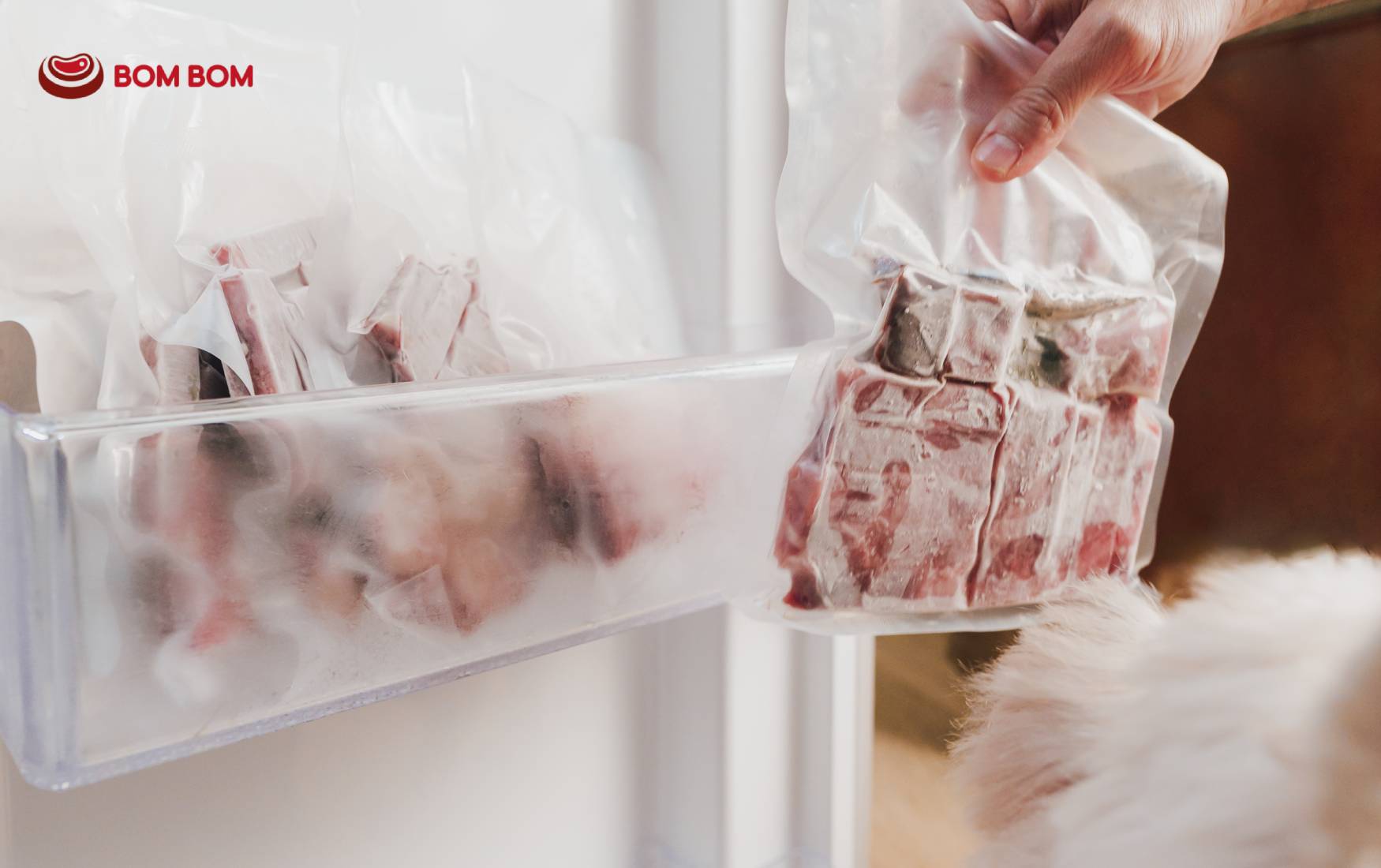
Why Proper Serving Sizes Matter for Your Pet's Health
When it comes to pet nutrition, ingredient quality and nutrients profile usually take centre stage. Pet owners scrutinize labels, analyse nutrient profiles, and prioritize foods that meet standards set by NRC, FEDIAF, or AAFCO. However, one critical aspect often gets overlooked: are we feeding our pets the right amount? Just as a balanced formulation is essential, so is proper portioning which goes beyond label recommendations.
In this article, we will discuss on why accurate portioning is important for your pet's health and how meal portioning can help prevent and manage common health issues. BOM BOM’s customization engine make it easy to customise serving sizes, ensuring your pet gets precisely what they need for their optimal well-being.
When it comes to feeding our pets, the impact of incorrect portion sizes is often underestimated. From gastrointestinal issues to joint pain, imbalanced servings can quietly contribute to various health problems. Here’s a breakdown of some key issues linked to improper meal portioning and why they might indicate the need to reassess your pet’s feeding habits:
Acid Reflux, Bile Vomiting, and Hunger Pukes: Underfeeding or irregular meal times can leave a pet’s stomach empty for extended periods, leading to excessive bile production, acid reflux, and occasional vomiting. Establishing a consistent feeding schedule with appropriately sized portions can help manage digestive acids and alleviate discomfort.
Joint Problems: Overfeeding with bigger meal portion often leads to weight gain, placing stress on joints and increasing the risk of arthritis and other musculoskeletal issues. On the other hand, underfeeding can limit the muscle mass that supports the joints, weakening the structure necessary for mobility and resilience. Balancing portion sizes promotes a healthy weight and muscle maintenance, protecting joint health.
Poor Muscle Mass: Pets need adequate protein and calories to maintain muscle development, which is essential for overall mobility, strength, and aging. Insufficient food intake or a lack of quality protein can slow down muscle growth, impacting your pet's endurance and making them prone to injuries.
Lethargy or Hyperactivity: Incorrect portion sizes, especially when meals are too rich in carbohydrates (or sugars) or fats, can cause energy spikes and crashes. Pets may experience sudden bursts of hyperactivity followed by prolonged lethargy, disrupting their natural energy balance and potentially impacting behaviour.
Sparse Fur and Poor Skin Health: A healthy coat and skin rely on a balanced intake of essential fatty acids, proteins, and vitamins. Underfeeding or serving inadequate portions of low-quality food can result in a dull, sparse coat, flaky skin, and even itching or redness. Proper portions ensure your pet’s coat and skin receive the nutrients they need for resilience and shine.
Organ Health: Overfeeding or underfeeding disrupts nutrient absorption, potentially straining vital organs like the liver and kidneys. These organs work hard to filter and process nutrients, so imbalances can compromise their function over time.
Digestive Discomfort and Indigestion: Overly large portions or sudden changes in food quantity can disrupt the gastrointestinal tract, causing issues like gas, bloating, and constipation. Adjusting portion sizes and monitoring gradual changes in your pet’s diet can prevent these issues and maintain digestive regularity.
How BOM BOM Calculates the Right Portion Size for Your Pet
While standard feeding guidelines based on body weight are helpful, they frequently fail to account for the distinct metabolic and lifestyle requirements of each pet. Consider two pets weighing 6kg: an underweight pet recovering from illness would need more calories to support recovery, while an overweight, low-activity pet would benefit from reduced portions to manage weight.
Metabolic rates add another layer of complexity. Younger, active pets or working dogs require more calories to meet their energy demands, while adult and senior pets or those with slower metabolisms may need fewer calories to prevent unnecessary weight gain.
To simplify this, BOM BOM’s customization engine factors in:
Age: Puppies and kittens need higher protein and calorie levels to support their rapid growth and development. Adult pets typically require a balanced diet to maintain health, while senior pets often benefit from diets that promote joint health, maintain muscle mass, and prevent obesity.
Weight: While in general larger pets may require more food than smaller ones, their specific needs should be assessed based on other factors, including body condition score, metabolism, activity level, and health status, rather than weight alone.
Activity Level: Pets with higher activity levels, such as those engaged in regular exercise or play, have greater energy needs compared to less active pets.
Neutering Status: Neutering can affect a pet’s metabolism and caloric needs. Neutered pets often experience a decrease in energy requirements, making them more prone to weight gain if their food intake is not adjusted.
Body Condition Score or Weight Goal: The Body Condition Score (BCS) is a valuable tool for assessing a pet’s overall body composition and health. It helps identify whether a pet is underweight, at a healthy weight, or overweight. Underweight pets may require increased caloric intake to achieve a healthy weight, while overweight pets often need reduced portions to promote weight loss.
Frequency of Feeding: Majority of adult pets do well on two meals per day, while puppies, kittens, or pets who prefer smaller meals will thrive on three small meals throughout the day. BOM BOM will portion the meals evenly according to the frequency of feeding.
While BOM BOM's customization engine effectively provides portion recommendations, it is still essential to remember that every pet is unique. Factors such as daily lifestyle, environmental influences like temperature, health and physiological status, breed-specific needs, and the energy content of ingredients all play a role in determining ideal portion sizes. For instance, lean proteins such as kangaroo and rabbit can be served in larger portions without contributing excess calories. Additionally, special conditions like pregnancy or lactation require personalised adjustments to meet specific nutritional needs. BOM BOM is committed to offering personalised recommendations and making adjustments as necessary to ensure your pet’s dietary requirements are met.
